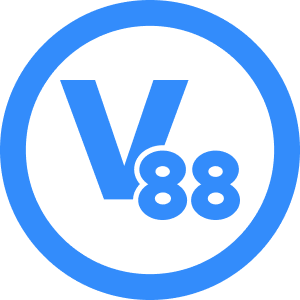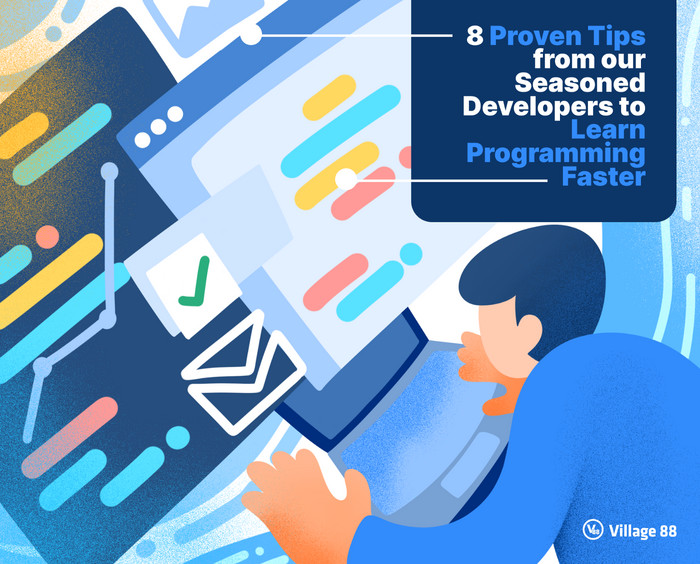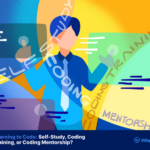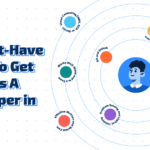Hi there! There could only be a few reasons why you have come here; you could have taken an interest in programming, you could be a computer science student or a self-taught developer attending a bootcamp. No matter your reasons, one thing is sure; learning and mastering the art of programming can be a struggle.
Remember that with programming, you will have to learn constantly, you ultimately will learn as you go, and it can be exciting to learn new things.
You don’t have to figure out where and how to start all on your own because we listed eight proven tips from our seasoned developers that would help you learn to program faster.
- Focus on Fundamentals to Build Stronger Core Foundation
Think about this. When you started as a grade schooler, you were taught your basic operations before getting introduced to fractions, decimals, square roots, and exponents.
“Fundamentals First.” As cliche as it sounds, you need the basics to progress in the programming industry. In every field of endeavor, mastering the fundamentals should be your priority. You will never get to the fancy stuff without going through the fundamentals first. The better you understand your fundamentals now, the easier it will be to learn the more advanced and complex concepts.
Don’t rush through your first computer science 101 class or skip through part one of the online tutorials. Take your time and get as familiar as you can with variables, loops, arrays, functions, and other programming fundamentals. Don’t get ahead of yourself and overlook the most crucial step in learning programming.
2. The More You Code, The More You Become Better At It
Reading and taking notes about programming alone won’t help you learn faster nor make you a better programmer. Get yourself in front of a computer and tinker with the codes and concepts you just learned. “Learning by doing” is a foolproof philosophy. Your true learning as a programmer happens when you put into code the fundamentals you just learned. Practice until coding almost becomes second nature to you.
3. Programming Is 90% Planning And 10% Actual Coding
As a programmer, you will be stuck on a chair in front of your computer, coding one hundred percent of the time. Wrong. The actual coding is just a portion of the whole programming process. Practice planning your program and codes and avoid jumping right into coding so that you don’t waste time with trial and error.
The old-school technique of coding-by-hand is a good practice, especially if you plan to make coding and programming a career. Coding by hand forces you to be intentional, cautious, and precise in your lines of code. Your actual programming will be easier if you have written the pseudocode or flow charts to guide you beforehand. This technique will also help when you evaluate and revise programs.
You might want to note that there are companies that make coding by hand part of their technical evaluation in their hiring process.
4. Learn To Use The Coding Language’s Built-In Functions.
Although we told you to get as familiar as possible with programming, we didn’t mean for you to begin coding everything from scratch. Most programming languages, like Python and JavaScript, have built-in functions you can access when using that specific programming language. The built-in functions abs() to compute the absolute value of a number, print() which enables programs to print, and round() to return a rounded value of a numeric value are a few examples that would be in Python.
Learn to use the built-in functions available in whatever programming language you choose to learn. They are usually simple, very optimized, and well-tested.
5. You Must Understand The Code You Found On The Internet Before Using Them
“Google is your new best friend” is a common joke among new and seasoned programmers. There are plenty of resources available online providing users with pre-written code snippets for specific tasks. What a blessing, right? But relying on online resources like these can be a double-edged sword. It could be good or bad, depending on how you use it.
As a beginner programmer, don’t settle on copy-pasting pre-made or sample codes. Don’t just read through these sample codes and assume you understand what’s going on. Be curious. Try to run them, tinker with these sample codes, discover what happens when you change one aspect, and replicate from scratch. Gain an understanding of how those codes work before using them for your project.
6. When Stuck, Don’t Hesitate To Seek Your Peers’ Help
Perhaps, one of the least utilized soft skills is the ability to ask for help. Asking for help isn’t a sign of your weakness but a strength needed to achieve excellence in any career. When you ask for your peers’ help, you build a connection with them. Allowing others to share information and resources with you shows them that you trust their ideas, and in turn, they will feel competent and confident about their skills. Asking for help also allows fresh ideas to flow, and you also gain new perspectives.
7. Take Breaks Often
It’s easy to say that most beginner learners have that irresistible desire to grasp every knowledge available to them in one go. Please reign in that passionate impulse. Although it’s commendable that you have a passion for learning, your excessive effort won’t speed your learning but would actually stunt it. Accept the fact that learning to the program won’t happen overnight.
Working or studying without adequate and regular intervals is unhealthy for your mental and physical health. Learning programming without a break puts your brain under constant strain and stress. It will stop working altogether when it reaches the saturation point and will result in feeling burnt out and will most likely lead to quitting midway through your learning journey. Don’t forget to take breaks. It will increase your focus and results in improved productivity.
8. Join Coding Boot Camps and Training
Learning to program on your own can have more disadvantages than advantages. Although there are plenty of materials and resources online, like Youtube Tutorials, it can be challenging without proper guidance. It can be challenging to figure out where to begin and how to apply concepts all on your own without guidance from experts in your field, which can lead you to learn irrelevant information while missing critical concepts. It can get overwhelming when you study on your own, and you might get demotivated and confused.
Joining coding boot camps and other training are great alternatives to a regular four-year college education for a fraction of the price. There are affordable online boot camps you can register with.
If you want to develop your programming skills further, you can join Village 88Training. We offer free training for fresh Filipino CS/IT graduates and non-graduates with coding backgrounds. This training is absolutely free, without hidden charges or future salary deductions when you land a job. No cost, no fee, just free.
Learn more about our free online training, visit our Facebook page, or check out our website to register. Together, we can achieve your programming goals! We’d love for you to join us.





